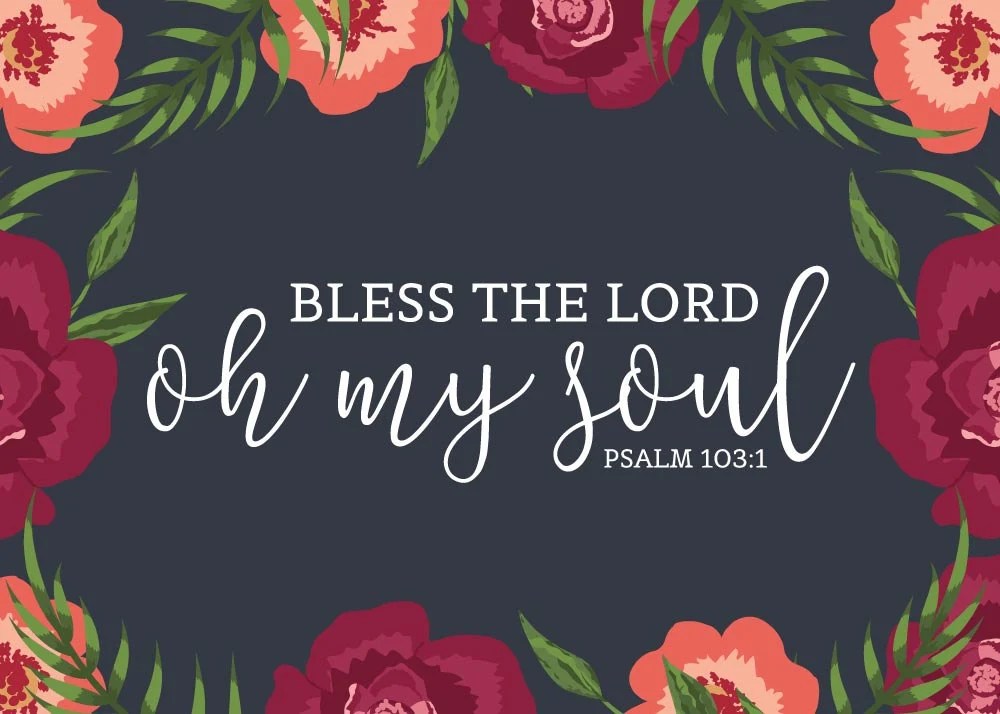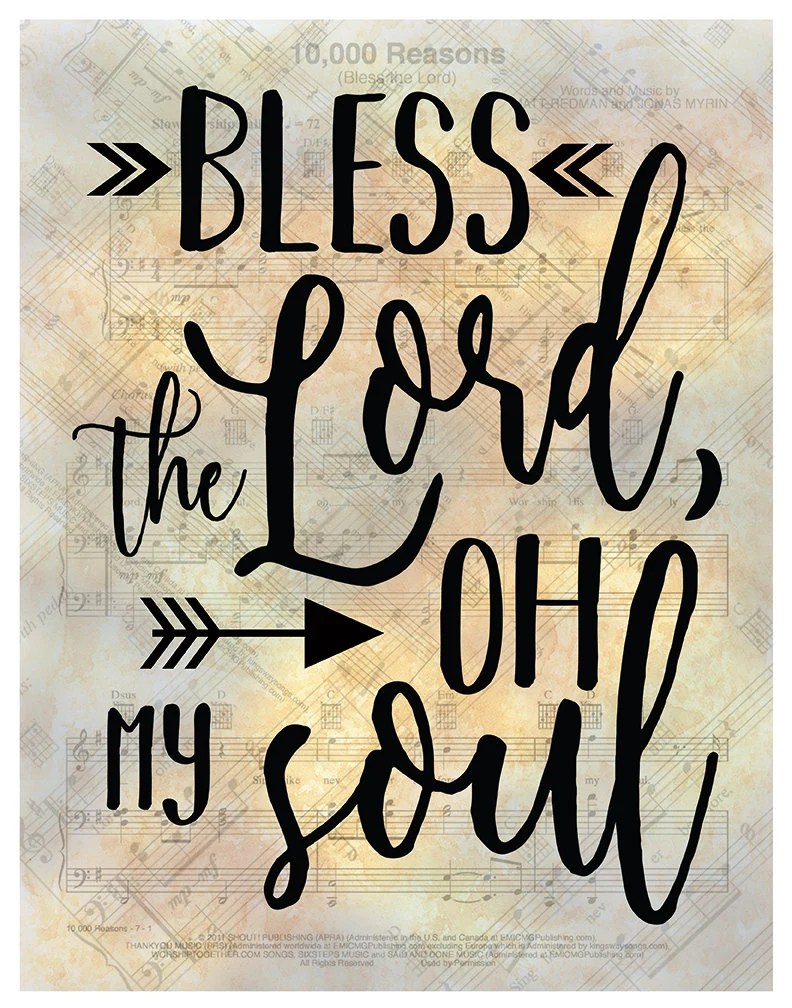Bless the Lord, oh my soul is not just a phrase; it’s a heartfelt declaration of faith and an expression of gratitude that resonates deeply within the hearts of believers. This powerful proclamation serves as a reminder of the divine blessings we often take for granted in our daily lives. When we utter these words, we are encouraged to reflect on our relationship with God, embracing the essence of worship that transcends the mundane and connects us with the divine.
Throughout history, songs, prayers, and scriptures have echoed the sentiment of blessing the Lord. Each repetition becomes a melody that reminds us of the importance of gratitude and praise in our spiritual journey. As we explore what it truly means to bless the Lord, we find that it is not merely an act of praise but a transformative experience that shapes our very being and outlook on life.
In this article, we will delve into the meaning behind bless the Lord, oh my soul, its biblical origins, and its significance in contemporary worship. Through various headings and questions, we aim to provide a comprehensive understanding of this powerful phrase, and how it can enrich our spiritual lives.
What is the Biblical Origin of “Bless the Lord, Oh My Soul”?
The phrase “Bless the Lord, oh my soul” originates from Psalm 103, a beautiful poem attributed to King David. This psalm serves as a declaration of praise to God, reminding us to acknowledge His goodness and grace. David begins the psalm by addressing his own soul, urging it to bless the Lord and remember His benefits. The repetition of “bless the Lord” emphasizes the importance of worship in our lives.
How Can We Apply This Phrase in Our Daily Lives?
Incorporating the phrase “bless the Lord, oh my soul” into our daily routines can serve as a powerful reminder to maintain a posture of gratitude. Here are some practical ways to do this:
- Morning Affirmation: Start your day by declaring your gratitude and blessings.
- Journaling: Keep a gratitude journal where you write down things you are thankful for.
- Prayer: Incorporate this phrase into your prayers, acknowledging Godâs goodness.
- Worship Music: Listen to songs that echo this sentiment and uplift your spirit.
Why Is Gratitude Important in Our Spiritual Journey?
Gratitude plays a vital role in nurturing our spiritual lives. When we focus on what we are thankful for, we shift our perspective from negativity to positivity. This shift not only enhances our relationship with God but also impacts our overall well-being.
Who Are Some Notable Figures Who Have Emphasized “Bless the Lord”?
Throughout history, many spiritual leaders and musicians have embraced the phrase “bless the Lord, oh my soul”. One notable figure is Matt Redman, a contemporary worship leader who has composed songs that encapsulate this message. His music encourages believers to reflect on Godâs goodness and to express their gratitude in worship.
Biography of Matt Redman
| Full Name | Matthew James Redman |
|---|---|
| Date of Birth | February 14, 1974 |
| Nationality | British |
| Occupation | Worship Leader, Songwriter |
| Notable Works | “10,000 Reasons (Bless the Lord)”, “Heart of Worship” |
What Influence Has Matt Redman Had on Contemporary Worship?
Matt Redman has significantly influenced contemporary worship music through his heartfelt lyrics and powerful melodies. His song “10,000 Reasons (Bless the Lord)” has become a staple in many churches, encouraging congregations to bless the Lord with all their heart and soul. His work serves as a reminder of the importance of worship and the transformative power of music in expressing gratitude.
How Can “Bless the Lord, Oh My Soul” Impact Our Community?
The phrase “bless the Lord, oh my soul” can serve as a unifying force within communities. When individuals come together to worship and express gratitude, they create a sense of belonging and shared faith. This collective worship fosters deeper connections among members and encourages a spirit of support and encouragement.
What Are Some Ways to Encourage Community Worship?
Encouraging community worship can be achieved through various initiatives:
- Organize Worship Nights: Create events focused on music and prayer.
- Small Groups: Form small groups for Bible study and sharing testimonies.
- Service Projects: Engage in community service as an act of worship.
- Share Testimonies: Allow individuals to share their stories of gratitude and blessings.
What Is the Long-term Impact of a Grateful Community?
A grateful community fosters a culture of positivity, support, and resilience. As members encourage one another to bless the Lord, they cultivate an environment where faith flourishes. This creates a lasting legacy of love and gratitude that can impact future generations.
Conclusion: Embracing a Heart of Gratitude
In conclusion, the phrase bless the Lord, oh my soul is a powerful reminder of the importance of gratitude in our spiritual lives. By embracing this sentiment, we can deepen our relationship with God, uplift our communities, and ultimately transform our hearts and souls. Let us continue to bless the Lord with all that we are, recognizing His goodness and grace in our lives. As we carry this message forward, we inspire others to do the same, creating a ripple effect of gratitude that echoes through eternity.
Transforming Spaces: The Magic Of Little John Home Design
Unveiling Brooke Monk: A Dive Into Her Life And Influence
Unveiling The World Of Jadelidamelio: A Rising Star



ncG1vNJzZmickaG8s7GNppxnrZtkr62x0qxkraCVYrmwvsNmpqFlna56tLvUpWSaZZqkwrO6xLJkqJ5dm66qwMdmmKecXZy%2FosDIraydnV1ne6nAzKU%3D